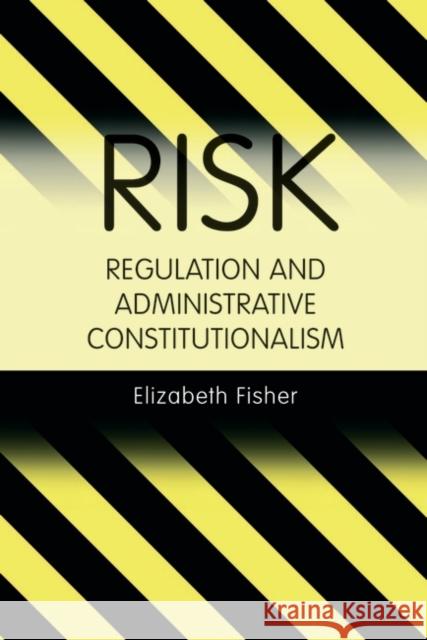Risk Regulation and Administrative Constitutionalism » książka
Risk Regulation and Administrative Constitutionalism
ISBN-13: 9781841130330 / Angielski / Twarda / 2007 / 256 str.
Risk Regulation and Administrative Constitutionalism
ISBN-13: 9781841130330 / Angielski / Twarda / 2007 / 256 str.
(netto: 463,60 VAT: 5%)
Najniższa cena z 30 dni: 459,60
ok. 22 dni roboczych.
Darmowa dostawa!
Over the last decade, the regulatory evaluation of environmental and public health risks has been one of the most legally controversial areas of contemporary government activity. Much of that debate has been understood as a conflict between those promoting 'scientific' approaches to risk evaluation and those promoting 'democratic' approaches. This characterization of disputes has ignored the central roles of public administration and law in technological risk evaluation. This is problematic because, as shown in this book, legal disputes over risk evaluation are disputes over administrative constitutionalism in that they are disputes over what role law should play in constituting and limiting the power of administrative risk regulators. A strong argument is made for re-orienting the focus of scholarship in this area through the examination of the following five case studies taken from five different legal cultures: --- an analysis of the bifurcated role of the Southwood Working Party in the UK BSE crisis --- the development of doctrines in relation to judicial review of risk evaluation in the US in the 1970s --- the interpretation of the precautionary principle by environmental courts and generalist tribunals carrying out merits review in Australia --- the interpretation of the WTO Sanitary and Phytosanitary Agreement as part of the WTO dispute settlement process --- the interpretation of the precautionary principle in the EU context. A strong argument is thus made for re-orienting the focus of scholarship in this area. This book will be of interest to government health officials, food safety organizations, environmental lawyers, and practitioners.











